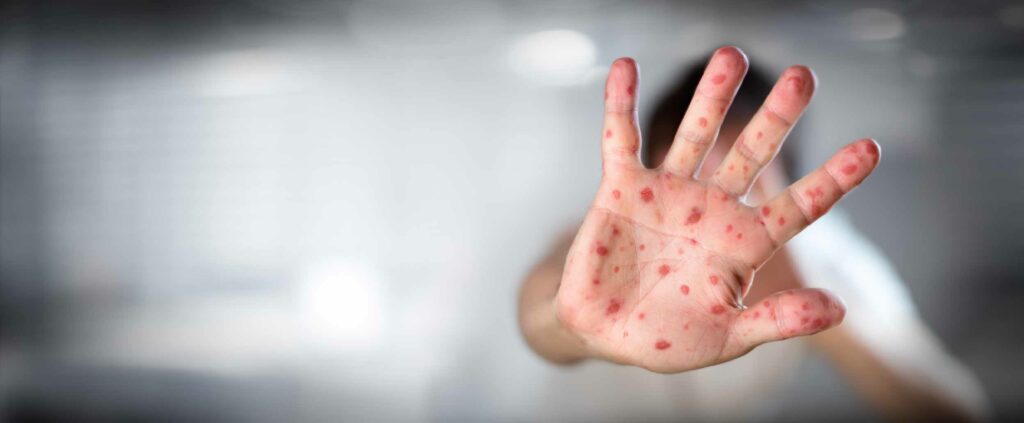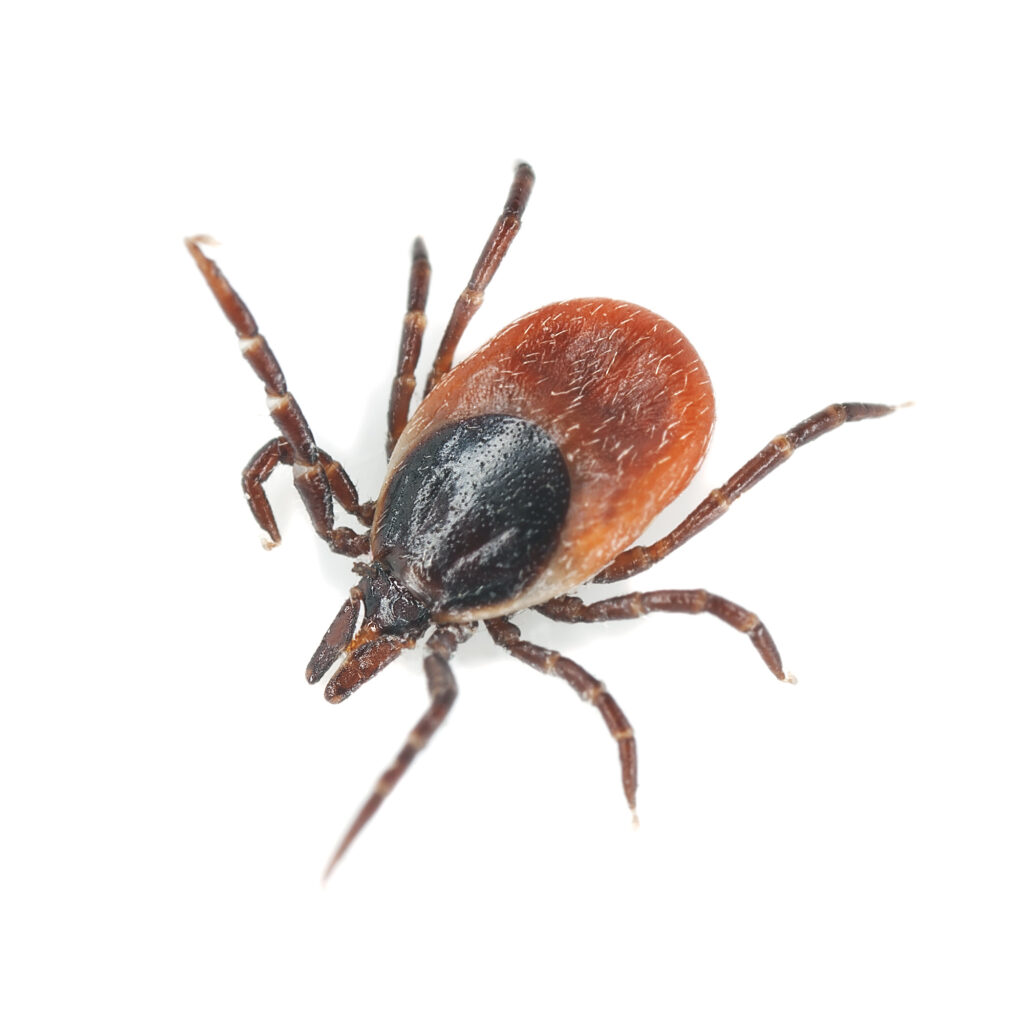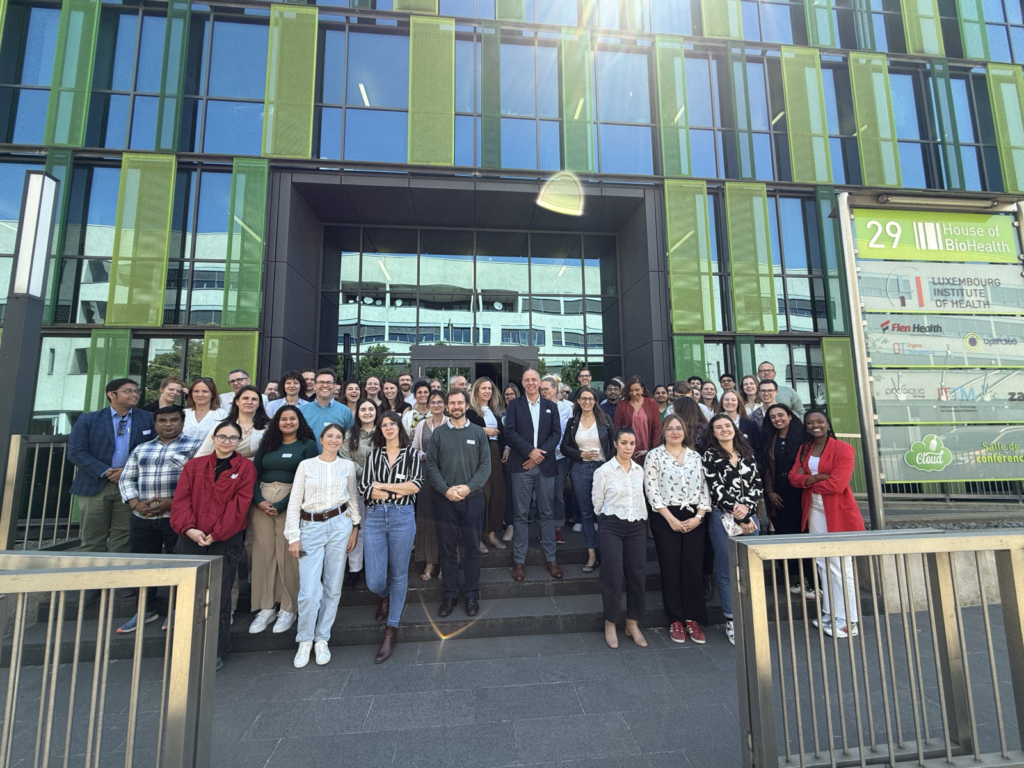News
Measles: potential consequence of disrupted vaccination activities
LIH researchers warn against complacency in the prevention of this deadly disease

Measles is a potentially fatal but vaccine-preventable disease that has been targeted for elimination. In a recently published Seminar, Luxembourg Institute of Health researcher Dr Hübschen and co-authors, provided a comprehensive overview of the current state of this infectious disease, including the warning of another resurgence as a consequence of disrupted vaccination activities due to the COVID-19 pandemic.
Measles is caused by a virus that spreads via respiratory droplets and secretions. The disease is highly contagious, and a single infected patient is estimated to infect an average of 12-18 people in a completely susceptible population. Because of its high transmissibility, at least 95% of the eligible population should be vaccinated to reach sufficient levels of herd immunity to achieve and maintain measles elimination. A safe and effective vaccine has been available for over half a century and it is estimated that over 25 million deaths were averted thanks to its use in the past two decades. Despite this, measles still causes considerable morbidity and mortality, especially among children in resource-poor settings.
Lead author Dr Judith Hübschen from the Department of Infection and Immunity, and co-authors published an update on current knowledge concerning measles in the prestigious Lancet journal.
Challenging diagnosis in elimination settings
“Although, traditionally, the suspected measles case definition comprised skin rash, fever, and at least one of cough, runny nose or conjunctivitis, clinical symptoms in previously vaccinated people can be milder or even absent,” explains Dr Hübschen, who is directing one of three WHO European Regional Reference Laboratories for measles and rubella. “We confirmed this ourselves during an investigation of the 2019 measles outbreak in Luxembourg, in a collaboration with the Inspection Sanitaire and the Centre Hospitalier de Luxembourg.” Even Koplik’s spots, small white spots that appear in the mouth and precede the skin rash, once considered characteristic of measles, are now being questioned as a reliable clinical marker and were reported in only a fraction of the cases identified in Luxembourg.
“Clinical diagnosis alone is unreliable, and laboratory investigation of all suspected cases is clearly warranted to rule out other conditions, to prevent further transmission and to support WHO elimination goals,” adds Dr Hübschen. “Especially in a measles elimination setting such as in Luxembourg, a comprehensive analysis using different diagnostic methods is required to neither miss nor wrongly confirm measles cases.”
Treatment of symptoms, rather than the disease
Due to the lack of specific antiviral drugs, case management is mostly focused on dealing with disease consequences such as dehydration after diarrhoea, and on alleviating symptoms like pain. Some countries offer post-exposure immunoglobulin treatment, particularly in cases that are expected to develop complications. However, the success of the treatment depends on many variables, including how early it is administered post-infection.
Complications related to measles can affect different organs, but most often attack the respiratory or the digestive tracts and are more common in certain population groups such as children younger than 5 years old as well as immunocompromised or malnourished individuals. Neurological complications are uncommon, but may lead to serious disability and death. Of concern are also the recently described long-term consequences of measles infection on the immune system, putting patients at an increased risk of other infections.
Prevention remains the best cure
With the availability of a safe, cheap, and effective vaccine since the 1960s, measles seemed to be an easy target for elimination and even eradication through mass vaccination of children. However, the measles resurgence between 2017 and 2019 has highlighted the fragility of previous achievements in measles control.
Although reported case numbers are currently very low, probably due to suboptimal surveillance and COVID-19 related sanitary measures, scientists and public health specialists fear that a new resurgence is pending, unless effective and timely vaccination campaigns close existing immunization gaps,
concludes Dr Hübschen.
To counteract vaccine hesitancy and objection, positive news coverage on social media and internet platforms that highlight the benefits, safety and efficacy of measles-containing vaccines and describe the potentially fatal and long-term consequences of measles infection would be beneficial to support immunization activities.
The full Seminar, published by the prestigious Lancet journal, and containing up-to-date information on measles can be read online.







